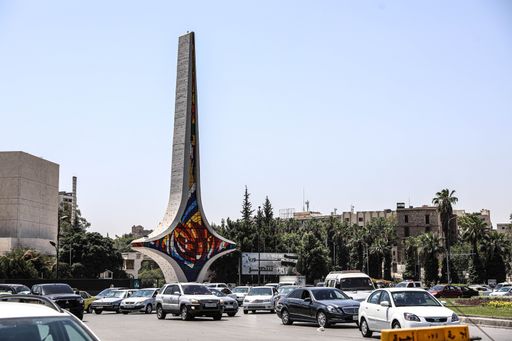Türkiye has condemned Israel's continued military aggression on Syria, warning it directly obstructs the country's path to stability and reconstruction after more than a decade of conflict.
"After 14 years of suffering, the Syrian people now have a chance for peace and stability," Türkiye's UN envoy Ahmet Yildiz told the UN Security Council on Thursday.
"Despite many challenges, they have taken swift steps towards this goal. They have achieved remarkable progress in seven months," he said, emphasising that Syria's leadership is committed to an inclusive political transition and national reconciliation through broad engagement with various sectors of society.
Yildiz stressed that Türkiye has consistently supported Syria's recovery and peace process, and noted growing international consensus in favour of these efforts.
However, he warned that Israel's "relentless attacks" since December 8 aim to disrupt this momentum.
"Israel's ongoing aggression directly undermines Syria's rebuilding efforts on the basis of social cohesion," he said, noting that Israeli "interventions and provocative statements threaten the country’s sovereignty and territorial integrity."
"These attacks targeting Syria's Presidential Palace and Ministry of Defense have clearly demonstrated that Israel has no interest in the peace and stability of Syria or the region," Yildiz added.
Urging all member states to reject Israeli aggression, he warned that Israel's "attacks destabilise the region and increase civilian casualties and displacement."
"It is also concerning that the scale and geographic scope of these attacks have surpassed those previously directed at the fallen regime," he said.
He stressed the need to respect Syria's sovereignty and uphold the 1974 Disengagement of Forces Agreement, concluding that "it is the duty of the international community to demonstrate that Syrians will not walk this path alone."

Clashes in Sweida, Israeli attacks
On July 13, small-scale clashes broke out between Bedouin Arab tribes and armed Druze groups in Sweida province.
Dozens of soldiers were killed in attacks by Druze groups against security forces deployed to the area.
After the clashes escalated, a ceasefire was reached between the parties.
The ceasefire was broken shortly thereafter, and the Israeli army carried out attacks targeting Syrian security forces.
Late on Thursday, Israel struck the outskirts of Sweida.
Local reports claimed the village of Walga, in Sweida's countryside, was specifically targeted and that there were deaths and injuries among local Bedouin residents.
On July 16, the Israeli air force struck the Syrian presidential compound, the General Staff Headquarters and the Defense Ministry in the capital, Damascus.
On the same day, a ceasefire was reestablished between the government and local groups in Sweida, while Israeli warplanes carried out attacks on Damascus and Daraa.
Since the security forces have withdrawn from Sweida, it is estimated that hundreds have been killed in the fighting and Israeli attacks.
Earlier on Thursday, Türkiye and ten Arab countries reaffirmed their support for Syria's unity, sovereignty and territorial integrity, and condemned repeated Israeli strikes on its territory.
In a joint statement issued by the Saudi Foreign Ministry, the Foreign Ministers of Türkiye, Jordan, the UAE, Bahrain, Saudi Arabia, Iraq, Oman, Qatar, Kuwait, Lebanon and Egypt expressed opposition to all foreign interference in Syria’s internal affairs.
The ministers welcomed the recent ceasefire in Sweida and called for its full implementation, describing the deal as vital to preserving Syria's unity, protecting civilians, and restoring the rule of law.















